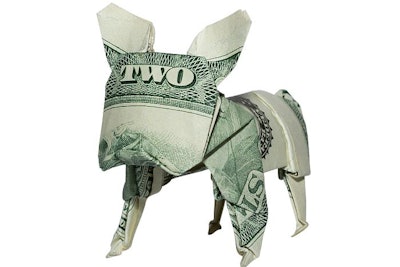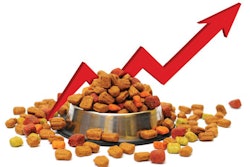
Thanks to the pet food market’s ongoing strength since the Great Recession of the late 2000s, private equity (PE) and investment firms have flocked to the industry, acquiring at least partial ownership in pet food companies to follow the growth trajectory. That has continued since the onset of the COVID-19 pandemic and will throughout 2021, some industry observers believe, as larger companies remain on the mergers and acquisitions (M&A) sidelines.
“While large corporates stand pat, reposition or conserve cash, private equity, and their portfolio companies, will dominate industry M&A,” wrote Bryan Jaffe, managing director of Cascadia Capital in the investment bank’s latest report, “Pet Industry Overview: Spring 2021.” Cascadia focuses on the pet, food, beverage and agribusiness sectors and has more than 12 years of experience in the pet industry, tracking pet food and product deals closely and also brokering some.
Since at least mid-2020, Jaffe has predicted that, due to economic uncertainty, most pet or pet food M&A deals would involve PE and smaller targets and valuations, rather than large conglomerates. This, Jaffe said, is due to those corporations prioritizing the conserving of capital and “addressing underperformance in their other franchises, with some engaging in divestitures to reshape their portfolios going forward.” That comment was in Cascadia’s Fall 2020 report.
In the Spring 2021 report, Jaffe wrote: “Many of the large consumable players are tied to even bigger food franchises that are commanding management’s continued attention and corporate resources, siphoning off both focus and capital from investing and M&A activities within their pet portfolio.”
Food conglomerates focusing on core portfolios
Jaffe’s analysis seems to be playing out in the pet food M&A space. In 2020, while a handful of larger pet food players—Purina, United Petfood, Partner in Pet Food, Vafo Group, Spectrum Brands (all listed and ranked in the Petfood Industry Top Pet Food Companies database)—bought smaller ones, most M&A deals were backed by PE.
To date in 2021, among the 15 pet food-related M&A deals that have occurred, most have involved smaller companies, often funded by PE, or industry suppliers. (United Petfood and Partner in Pet Food have remained very active this year, among the larger names making acquisitions.)
The two deals with really big names attached that have happened since late 2020 both involve conglomerates divesting to focus on their core businesses and competencies—making Jaffe’s comments from last year about such divestitures ring true. First, J.M. Smucker sold Natural Balance in December 2020 to focus on its core mass market pet food brands; as a pet specialty, superpremium line, Natural Balance never really quite fit in the Smucker portfolio. (Natural Balance is now owned by a PE firm, Nexus Capital Management, and is all in on the pet specialty channel.)
Very recently, on May 14, 2021, Tyson Foods announced it is selling its pet treats business to General Mills, owner of Blue Buffalo pet food. While that treats division had been successful, according to Tyson, perhaps the pandemic’s effects on the food supply, especially proteins like chicken, caused the company to reevaluate its involvement in non-human food categories and markets.
General Mills, on the other hand, is proving the exception to the pattern of large corporations “standing pat,” as Jaffe put it, and focusing on only their human food businesses; instead, it’s adding to its pet portfolio. Maybe that’s because the portfolio’s revenues increased 18.5% from 2019 to 2020, according to the Top Pet Food Companies Database—the opposite of standing pat.


















